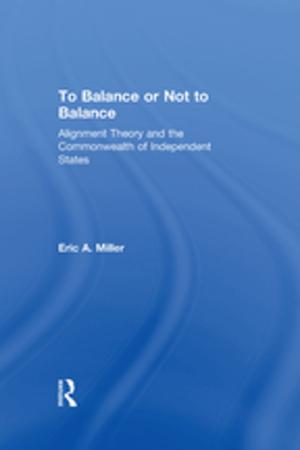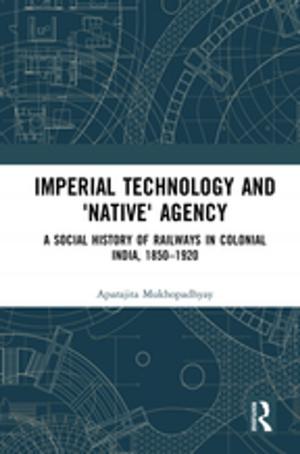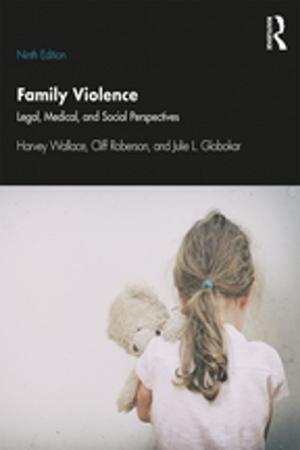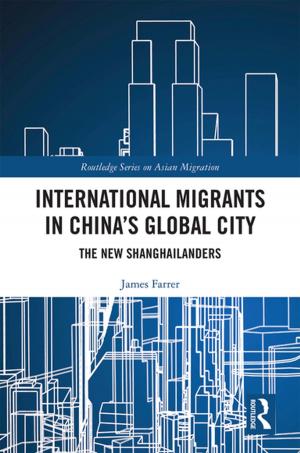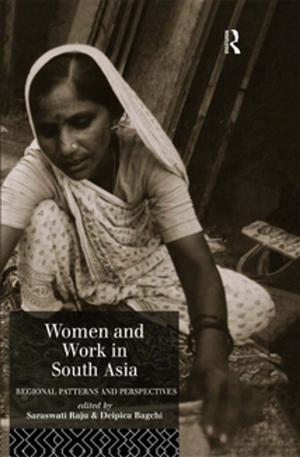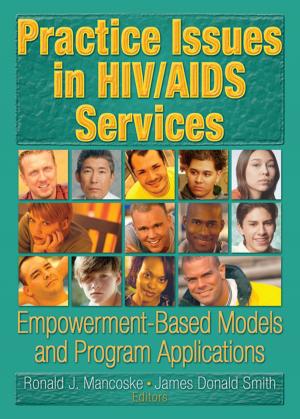Gender, Globalization, and Violence
Postcolonial Conflict Zones
Nonfiction, Social & Cultural Studies, Social Science, Gender Studies, Feminism & Feminist Theory, Women&| Author: | ISBN: | 9781136655654 | |
| Publisher: | Taylor and Francis | Publication: | July 11, 2014 |
| Imprint: | Routledge | Language: | English |
| Author: | |
| ISBN: | 9781136655654 |
| Publisher: | Taylor and Francis |
| Publication: | July 11, 2014 |
| Imprint: | Routledge |
| Language: | English |
This wide-ranging collection of essays elaborates on some of the most pressing issues in contemporary postcolonial society in their transition from conflict and contestation to dialogue and resolution. It explores from new angles questions of violent conflict, forced migration, trafficking and deportation, human rights, citizenship, transitional justice and cosmopolitanism. The volume focuses more specifically on the gendering of violence from a postcolonial perspective as it analyses unique cases that disrupt traditional visions of violence by including the history of empire and colony, and its legacies that continue to influence present-day configurations of gender, race, nationality, class and sexuality. Part One maps out the gendered and racialized contours of conflict zones, from war zones, prisons and refugee camps to peacekeeping missions and humanitarian aid, reframing the field and establishing connections between colonial legacies and postcolonial dynamics. Part Two explores how these conflict zones are played out not just outside but also within Europe, demonstrating that multicultural Europe is fraught with different legacies of violence and postcolonial melancholia. Part Three gives an idea of the kind of future that can be offered to post-conflict societies, defined as contact zones, by exploring opportunities for dialogue, restoration and reconciliation that can be envisaged from a gendered and postcolonial perspective through alternative feminist practices and the work of art and their redemptive power in mobilizing social change or increasing national healing processes. Though strongly anchored in postcolonial critique, the chapters draw from a range of traditions and expertise, including conflict studies, gender theory, visual studies, (new) media theory, sociology, race theory, international security studies and religion studies.
This wide-ranging collection of essays elaborates on some of the most pressing issues in contemporary postcolonial society in their transition from conflict and contestation to dialogue and resolution. It explores from new angles questions of violent conflict, forced migration, trafficking and deportation, human rights, citizenship, transitional justice and cosmopolitanism. The volume focuses more specifically on the gendering of violence from a postcolonial perspective as it analyses unique cases that disrupt traditional visions of violence by including the history of empire and colony, and its legacies that continue to influence present-day configurations of gender, race, nationality, class and sexuality. Part One maps out the gendered and racialized contours of conflict zones, from war zones, prisons and refugee camps to peacekeeping missions and humanitarian aid, reframing the field and establishing connections between colonial legacies and postcolonial dynamics. Part Two explores how these conflict zones are played out not just outside but also within Europe, demonstrating that multicultural Europe is fraught with different legacies of violence and postcolonial melancholia. Part Three gives an idea of the kind of future that can be offered to post-conflict societies, defined as contact zones, by exploring opportunities for dialogue, restoration and reconciliation that can be envisaged from a gendered and postcolonial perspective through alternative feminist practices and the work of art and their redemptive power in mobilizing social change or increasing national healing processes. Though strongly anchored in postcolonial critique, the chapters draw from a range of traditions and expertise, including conflict studies, gender theory, visual studies, (new) media theory, sociology, race theory, international security studies and religion studies.


